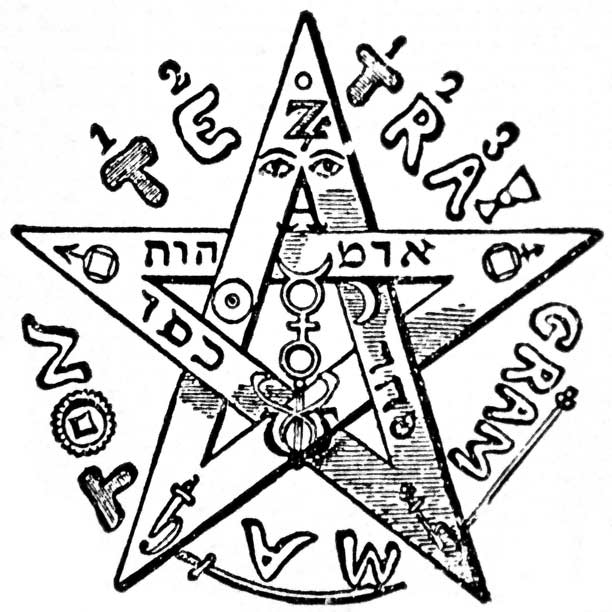Occultism and Esoterism. Differences and rituals.
If we gather every practice of esoteric and occultist currents, some people call this group as "esoteric tradition" thanks to its spiritual features. They have in mind their origins. We can't avoid dividing them in esoteric and occultist branches by two different ways we have seen before in the previous article :
• Age: everything before XIXth century must be inside esoterism and since that century we can consider put it inside an occultist current.
• Aim: Esoterism always is considered as more spiritual or universal while occultism is more personal.
First, we must distinguish which arts and sciences are academic so it only would be useful for occultism. Inside esoterism is more adequate to speak about disciplines and branches because of the spiritual side. But this becomes confusing due to the diverse names we can find in both groups. Here we are going to include the negative and dangerous practices.
-On esoterism:
The key to identify esoterism is to check if the practice has an ancient, universal or traditional feature: if it represents a relationship between what it does and a deep meaning. So it comprehends the principles of magic, from the occultism features, tangible or not.
The esoteric disciplines are called "sciences" or Gr. "-logías": numerical sciences, for example which comprehend the numerology and arithmancy but also every divinatory practice where the numbers play a relevant role as geomancy, astrology or fortune telling. The beginner and eschatological, levels and the symbolism of the numbers are included here. Science of names get deep in the knowledge and value of the word, powerful, as well as the same letters, symbols or graphical symbols.
According to esoteric branches of knowledge the ways are: initiation, Hermeticism, Gnosticism, anamnesis or memory of previous existences, meditation and a long etc. in superior knowledge and from something bigger.
Occultism:
If esoterism aims for traditions and universal understanding, occultism aims for use that knowledge with less spiritual objectives and more evident and material ones. It also allows to modify and create methods.
In the case of occultism there will be practices that can be both and it will depend on the features previously mentioned.
Among the hidden arts we can find mantic practices and magic, recognizable as arts thanks to their mechanics and interpretation. Astrology, alchemy and hidden medicine are included, being practices more technique, almost scientific. In order to understand this, it will be necessary which is the organization of the other group.
Hidden sciences with a more intellectual feature include the natural Hermeticism. This follows obedience to Hermes Trimegisto and knowledge of goods given to men kind. It focuses on the knowledge of natural Elements, Fatality, Union with God, Men and Universe and so a little on cosmology. As it happened in esoteric disciplines, it happened in the hidden features of the words and sounds. Cabbala is practice and speculative when it is about spirit studies and underworld group, almost theurgist. Sciences of prodigies, which is an analysis of the signs and happenings -fictional or not- along history, interpreting the allegedly and revealing messages sent.
Last, correspondence teaching, also called "mirror" teaching, is more common than we could think. We do not only speak about sympathetic issues where the similar can influence on similar things, but also the belief that everything has a reflection in something bigger and smaller. For example that our body is a microcosmos, a reflection of the universe, or that somatize in certain ways can reflect our inner state -physical or spiritual- bases of the acupuncture, reflexology or morphopsicology itself.
Summarizing, divination and hidden powers magic, esoteric disciplines and hidden arts coincide, but we must understand they are different on the objectives they pursue. It is not a coincidence that occultism calls "art" to those practices that come directly from esoterism, but part of Hermeticism also does it but it is separated from this group. We have talked about a specific Hermeticism, since it could be considered as an esoteric branch. Despite of the attempts of diversify practices, the origin of occultism from esoterism makes them to join together and be hard to separate. However is always useful to have a small guide to organize them, similar to the one we proposed.
Pietro Viktor Carracedo Ahumada - pietrocarracedo@gmail.com
Bibliografía:- Eliade, M - Ocultismo, Brujería y modas culturales, Paidós orientalia, 1997, Madrid.- Riffard, P. Diccionario del esoterismo, Alianza Editorial, 1987 Madrid
- Tondriau, J. - Diccionario de las ciencias ocultas, La tabla de esmeralda, EDAF, 1985, Madrid
Related articles:


